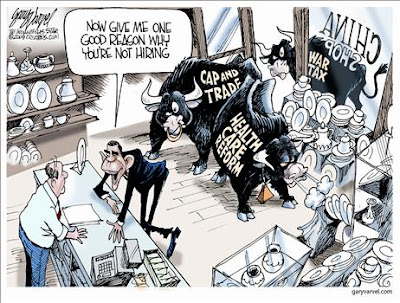Post-9/11:
Life as a comic book
By J.
Raimondo
A FELONY URINATION
Richard Bizarro, who got up out of his seat to take a
whiz, has become "the first person arrested under a new flight regulation
adopted for the Olympics," Fox News reports. Bizarrely, he faces "up
to 20 years in prison on charges of interfering with a flight crew." On a
Delta airlines flight from Los Angeles to Salt Lake City, Mr. Bizarro got out
of his seat 25 minutes before landing, in violation of the 30-minute rule newly
imposed on Salt Lake City flights by the Federal Aviation Administration as a
precautionary measure during the Olympics. (The same rule is permanently in
effect for all travelers to the Imperial City).
For this he's facing 20 years? Ah, but urination without
authorization is just the beginning of his crimes: according to one of the
witches disguised as flight attendants, Bizarro not only "ignored her
orders" but also "stared at her for about a minute before returning
to his seat." The Fox News story also ominously adds that Bizarro is
"6-foot-2 and 220 pounds" – another crime, along with unauthorized
staring, in the Bizarro World we're living in. Goodness gracious me, I'll be
surprised if he doesn't get life without possibility of parole!
Oh, but here's my favorite part:
"Because of the incident, air marshals aboard the plane ordered all
passengers to put their hands on their heads for the rest of the flight."
WELCOME TO BIZARRO WORLD
If this seems utterly inexplicable to you, then you
don't understand the central organizing (or is that disorganizing)
principle of Bizarro World. As the link above explains, this is:
"A planet where alarm clocks dictate when to go to sleep, ugliness is
beautiful and the world's greatest hero is a chalk- faced duplicate of
Superman."
In the normal world – that is, the world prior to 9/11 – airlines competed
for business, each one claiming to treat their customers like royalty. In the
Bizarro World we landed in after 9/11, however, the airlines are competing to
see which one is the meanest, and, from what I can see, the
competition is positively cutthroat.
BOOK HIM!
The FBI claims that "the incident [what incident?]
was seen by two of three undercover air marshals on board …One of the agents
said he saw Bizarro give what appeared to be a 'thumbs up' to another passenger
as he returned to his seat, prompting the marshals to take control of the
cabin." Aha! Unauthorized hand signals! Give that man another 20
years!
HIJACKERS OR SKY MARSHALS? YOU
DECIDE
Bizarro, for his part, told the Salt Lake Tribune that he thought the sky marshals were hijackers. When three men,
"old enough to be his grandchildren," started yelling and demanding
that everyone put their hands on their heads, "I believed I was witnessing
a hijacking of our airplane," he said. Bizarro, in spite of his name, just
doesn't get it: everything's changed, you dolt! Up is down. Down is
up. Ugly is beautiful, and vice-versa. Sky marshals act like hijackers – makes
sense to me….









